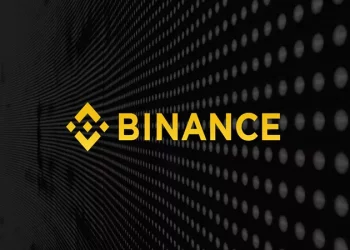The world of cryptocurrency exchanges has expanded rapidly, with platforms like Binance becoming central hubs for buying, selling, and trading various cryptocurrencies. However, the legality of using Binance in certain countries, especially the United States, has raised numerous questions in recent years. With regulatory scrutiny intensifying globally, it’s essential for US-based crypto enthusiasts to understand whether they can continue using Binance and how the platform’s operations have evolved to meet US legal requirements.
This article will provide a detailed analysis of Binance’s current standing in the United States, the legal framework surrounding cryptocurrency exchanges, and the steps Binance has taken to comply with US regulations. We’ll also explore alternative platforms for US users, should Binance’s restrictions affect your ability to trade.
Understanding Binance’s Global Presence and US Challenges
Binance, founded in 2017 by Changpeng Zhao (often referred to as “CZ”), has quickly grown to become one of the largest and most popular cryptocurrency exchanges in the world. The platform offers an extensive range of cryptocurrencies, advanced trading features, and competitive fees, which have contributed to its widespread use globally. Binance’s rapid expansion across various markets was initially unconstrained by regulatory concerns, as it allowed users from most regions, including the US, to access its services.
However, as the crypto market matured, regulators in many countries began to impose stricter requirements on crypto exchanges. In the United States, the regulatory landscape for cryptocurrency exchanges is complex and fragmented, with multiple agencies overseeing different aspects of crypto trading. The Securities and Exchange Commission (SEC), the Commodity Futures Trading Commission (CFTC), and the Financial Crimes Enforcement Network (FinCEN) are just a few of the US regulators involved in crypto-related oversight.
For Binance, this posed a significant challenge. In 2021, the exchange faced increasing scrutiny from US regulators, which eventually led to Binance reducing its operations in the country. This included shutting down certain services like futures and margin trading for US users, and the announcement that it would no longer accept US customers on its global platform. As of now, Binance operates a separate, US-compliant version of its platform called Binance.US, which is designed to meet the regulatory requirements imposed by US authorities.
The Rise of Binance.US
In response to the regulatory challenges, Binance launched Binance.US in 2019. The goal of Binance.US was to create a platform that complied with US laws while still providing the same core services as the global Binance exchange. Binance.US is operated by BAM Trading Services, which is an independent entity and not directly part of Binance’s global operations. This separation was made to comply with US regulations, including Know Your Customer (KYC) and Anti-Money Laundering (AML) rules.
Binance.US is registered with FinCEN as a money services business (MSB), which allows it to legally operate in the US under federal law. Additionally, it is subject to the regulations enforced by the states where it is licensed to operate. However, Binance.US has faced limitations in terms of the number of cryptocurrencies available for trading, as well as some features that are offered on the global Binance platform. Binance.US does not offer futures or margin trading, which is one of the core offerings of Binance globally.
Despite these restrictions, Binance.US remains a popular platform for US-based crypto traders. It provides access to a wide variety of digital assets, including popular coins like Bitcoin (BTC), Ethereum (ETH), and Binance Coin (BNB), along with altcoins like Cardano (ADA) and Solana (SOL). Binance.US also offers spot trading, staking, and fiat-to-crypto purchases, making it an accessible exchange for both beginner and experienced traders.
Key Limitations of Binance.US
While Binance.US offers a range of services, it does come with limitations that users should be aware of before deciding to use the platform. Some of the primary constraints of Binance.US compared to the global Binance exchange include:
Limited Cryptocurrency Selection: Binance.US offers fewer cryptocurrencies than the global Binance platform. Some coins and tokens that are available globally may not be listed on Binance.US due to regulatory concerns.
Lack of Advanced Trading Options: As mentioned earlier, Binance.US does not offer advanced trading features like margin trading or futures contracts. These services have been banned for US customers due to regulatory concerns surrounding leverage and the risk of financial loss.
Geographic Restrictions: While Binance.US aims to serve the entire US market, it is not available in every state. Users in states such as New York and Texas cannot access Binance.US due to local regulations.
Higher Fees: Binance.US tends to have slightly higher fees than its global counterpart, mainly due to the cost of regulatory compliance in the US. Trading fees on Binance.US range from 0.10% to 0.50%, depending on the user’s trading volume and whether they use Binance Coin (BNB) to pay for fees.
KYC and AML Compliance: Binance.US is required to enforce stringent KYC (Know Your Customer) procedures to prevent money laundering and ensure the identity of users. While this is an essential measure for compliance, it can be time-consuming and may discourage some potential users who prefer less intrusive registration processes.
How to Use Binance.US Safely
If you’re a US-based crypto enthusiast and still wish to use Binance.US, it’s important to understand how to safely engage with the platform. Here are some key steps to ensure that you are following best practices and complying with US regulations:
Create an Account on Binance.US: To start using Binance.US, you’ll need to create an account by providing your email address, password, and agreeing to the platform’s terms and conditions. During the registration process, you will also need to verify your identity as part of the KYC requirements.
Enable Two-Factor Authentication (2FA): For added security, it’s crucial to enable two-factor authentication (2FA) on your Binance.US account. This adds an extra layer of protection to your account by requiring a second verification step when logging in or making withdrawals.
Fund Your Account: Once your account is verified, you can fund it using a variety of payment methods. Binance.US supports bank transfers, debit card deposits, and wire transfers for fiat-to-crypto purchases. You can then use USD to buy popular cryptocurrencies like Bitcoin, Ethereum, and others.
Choose Your Trading Pair: After depositing funds, you can select your preferred trading pair. Binance.US supports a wide range of pairings, such as BTC/USD, ETH/USD, and many altcoin pairs. You can choose between spot trading or staking depending on your investment preferences.
Withdraw Funds When Necessary: It’s always a good idea to withdraw your cryptocurrency or fiat funds to a personal wallet for added security. While Binance.US is a reputable platform, no exchange is entirely immune to hacking, so using a hardware wallet or a private wallet for storing your funds is a wise move.
What to Do If Binance.US Is Not Available in Your State
If you live in a state where Binance.US is not available, you may be looking for alternatives to continue trading cryptocurrencies. Fortunately, there are several reputable exchanges that operate legally in the US and provide a wide range of services:
Coinbase: Coinbase is one of the most popular US-based cryptocurrency exchanges. It is user-friendly and offers a vast selection of cryptocurrencies. Coinbase also provides educational resources for beginners and a secure platform for trading.
Kraken: Kraken is another well-established US-based exchange that offers a wide variety of cryptocurrencies and advanced trading features. It is known for its strong security measures and transparency.
Gemini: Gemini is a regulated US exchange that has a focus on security and compliance. It is an excellent choice for US users who are looking for a reliable platform to buy, sell, and store cryptocurrencies.
eToro: eToro is a social trading platform that allows users to trade cryptocurrencies, stocks, and more. It is available in most US states and provides an easy-to-use interface for beginners.
Bitstamp: Bitstamp is one of the oldest cryptocurrency exchanges and is well-regarded for its reliability and regulatory compliance. It offers a wide variety of trading pairs and is suitable for both beginners and advanced traders.
Binance’s Ongoing Legal Challenges in the US
Despite Binance’s efforts to comply with US regulations, the platform continues to face legal challenges. The SEC and other regulators have raised concerns over Binance’s handling of user funds and the way it offers unregistered securities in the form of certain tokens. As of now, these legal challenges have not resulted in Binance.US being shut down, but they may influence the platform’s ability to operate freely in the US in the future.
Binance has been taking steps to improve its compliance by hiring a dedicated team of legal and regulatory experts. Additionally, Binance has been working closely with regulators to ensure that it adheres to all necessary guidelines. However, the future of Binance in the US remains uncertain, and users should be aware that changes to the platform’s operations could occur as regulations evolve.
Conclusion: Can You Still Use Binance in the US?
In conclusion, yes, you can still use Binance in the US, but with limitations. If you’re in the United States, you can access Binance.US, a platform that complies with US regulatory requirements and provides a range of cryptocurrency trading options. However, Binance.US has fewer features compared to its global counterpart and is subject to state-specific restrictions. If you’re based in a state where Binance.US is not available or if you need more advanced trading features, consider exploring other US-friendly exchanges like Coinbase, Kraken, and Gemini.
As the regulatory environment surrounding cryptocurrency exchanges continues to evolve, it’s essential to stay informed about any changes to Binance’s operations or legal standing in the US. Always ensure that you are using a secure, compliant platform for your cryptocurrency trading needs and that you follow best practices to protect your investments.
Related topics:

















